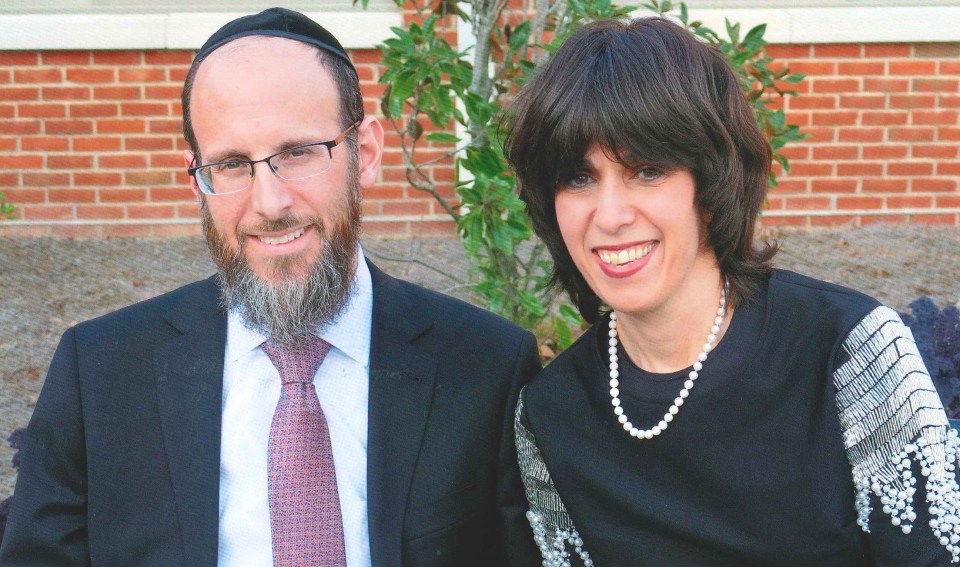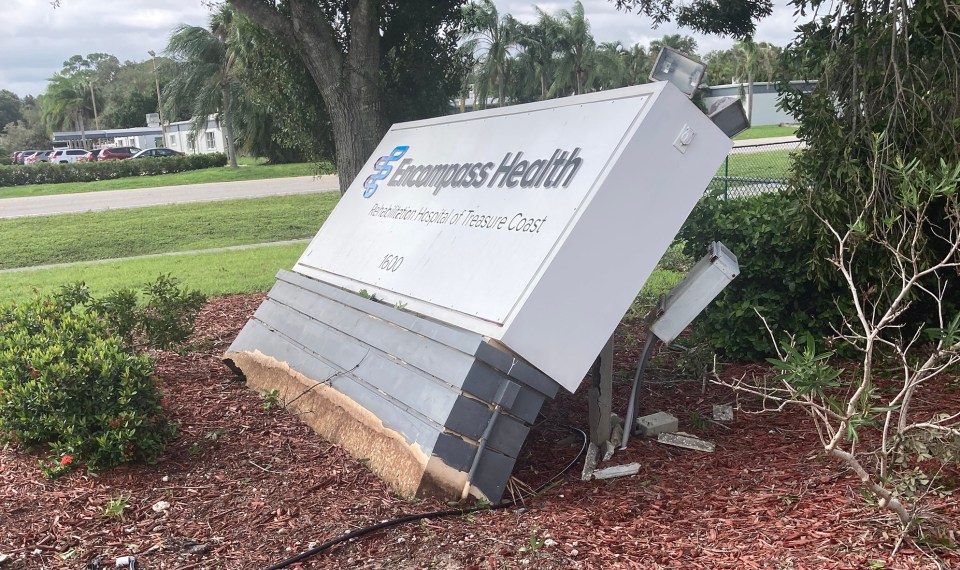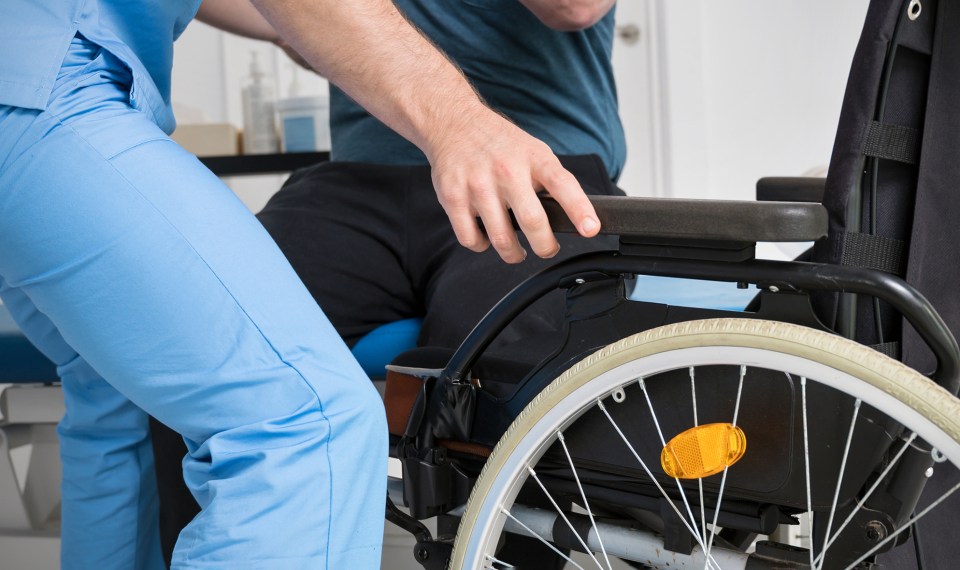By Eli Gold, Sr. Occupational Therapist and Stroke Program Co-Champion at Encompass Health Rehabilitation Hospital of Savannah
On March 6, 2017, my husband had a stroke. As a seasoned occupational therapist, stroke support group coordinator and hospital stroke program co-champion at Encompass Health Rehabilitation Hospital of Savannah, most people would assume this would be an easier experience for me because I work with stroke survivors every day. However, when I stepped out of my occupational therapy role, there was a lot that I learned from my new role as a caregiver. Here are just a few things to keep in mind as you are taking on this important role in your loved one’s life.
- Learn to be an advocate for your patient. This is a very overwhelming and emotionally draining time for the caregiver and the patient. However, it’s vital for the caregiver to serve as an advocate for the family and patient to keep everyone informed with what’s going on and make sure you are getting every bit of information the patient needs. When you don’t understand what a medical professional is saying, ask questions and then ask them to confirm your understanding of it. Also, if the patient is having complications, speak up for the patient and help them get the care or answers they need.
- Build a support system. As someone who likes to take full control of my day-to-day life, I had to learn how to ask for help and delegate responsibilities. I became a traffic controller and had to realize I wasn’t just his full-time caregiver; I was also working full time and was taking care of our children. Sit down and figure out where you need help, and who can you trust to handle it. Will you need help with transportation to doctors’ appointments or getting your children to soccer practice? Do you need help with lawn care or getting groceries? Are there family members of the patient who might be anxious and need someone else to explain to them what is going on? Does someone need to come stay with the patient to give you some time to yourself or to run errands? Also, just because people reach out to help, it is OK to say no if they’re not the right fit for where you need help.
- Do your research. Going through this process, you’ll have to make a lot of decisions – sometimes very quickly. These decisions can be crucial in helping the patient reach his or her fullest potential, so make sure to do your research. Ask your friends who have gone through this experience for information; look at online reviews; and talk to your doctors. You should also look beyond your local area to make sure the stroke survivor is getting the right care for their needs by a specialist who understands or treats their specific challenges. Also, it’s OK to get second opinions if your loved one isn’t seeing progress under the care of one provider. Keep a binder of the stroke survivor’s journey including goals, medications, doctors’ names and equipment used in their care. This information may be beneficial later down the road.
- Prioritize your time. Remember that you have other roles than just being a caregiver. You may be a mom, dad, employee, boss, community volunteer or fill another role. You have to find balance for yourself and your family. There are also several tactics out there to help you prioritize your time. Having groceries delivered or ordering more items online may be a little more expensive, but how much time will it save you for other essential tasks? Take advantage of pharmacy delivery services. Can you fit two or three doctors’ appointments in one day to make this easier on you and your loved one? Is there an app that can help you manage medications and a schedule of when to take them?
- Consider a support group. Support groups provide a comfortable environment for patients and caregivers to have healthy and honest conversations about their experience with people going through similar situations. In addition to aiding in social and emotional support, they are a great place to acquire resources and knowledge that may become helpful during the recovery journey. It also helps the patient or caregiver realize they are not alone or not the only one feeling a certain way.
- Be an encourager. It’s important to not think about the past and how things were, because there may be a new normal. Think forward. Celebrate every success and encourage your loved one or friend to try things again. Assess the safety of the situation and hold their hand if needed. It’s important for the stroke survivor to reintegrate into their community and return to a meaningful lifestyle. As an example, our family has always loved to travel, and we wanted to continue it, so we learned to modify our plans. While we drove to get to our destination before, we started flying to reduce time in the car. Where we typically walked a lot, we have started taking a cab or altered our plans based on my husband’s needs.
- Most importantly – know when to transition yourself out of the caregiver role. Make sure you are not always a caregiver. Be a spouse, mom and friend too. It’s important to continue those relationships with the stroke survivor and discuss things other than their recovery. As the patient begins regaining independence and function, know when and how to transition out of the role so that it can aid in helping your loved one gain the confidence they need to move forward.
At some point in most everyone’s lives they become a caregiver and many of these tips will apply to a variety of roles you make take on. Being a caregiver may have its challenges but it also has its rewards as you are helping your loved one get their life back. My husband continues to get better each day, and he’s thankfully back to his job as an educator, but I’d be lying if I said we didn’t still have challenges and emotional tolls.
However, we’ve been able to celebrate life’s moments again. Shortly before his stroke, one of our daughters got married. We were sitting in his room during his inpatient rehabilitation hospital stay when we received her wedding video. As I watched my husband dancing with her, I was filled with much emotion wondering if he was ever going to get back to that level of independence and function. Thankfully, he did! Three years post stroke, another daughter got married – and he was able to dance with her at the wedding. It took a lot to get him to this point, but with hard work and support, we’ve made sure he didn’t miss out on life’s precious moments.
The content of this site is for informational purposes only and should not be taken as professional medical advice. Always seek the advice of your physician or other qualified healthcare provider with any questions you may have regarding any medical conditions or treatments.



